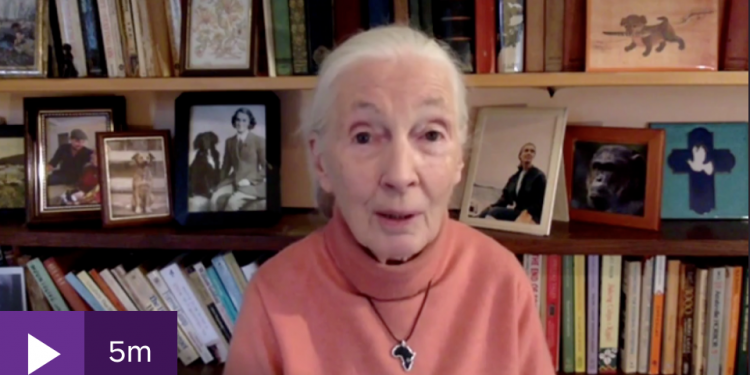InJane Goodall says wildlife destruction leads to pandemics. She called for the emancipation of people from poverty and pointed out that it negatively impacts the environment, as people in poverty who have no other option but to cut down forests in order to survive will cut down the trees to feed their families, and in urban areas, they will buy the cheapest food no matter the cost since they have no other option.
“If we don’t do things differently, we’re finished.”. “We can’t continue like this much longer,” she said, urging an overhaul of our food systems and an end to habitat destruction.
Jane Goodall had discussed the link between the destruction of wildlife habitats and illnesses such as HIV, Ebola, Sars, Mers, and Covid-19 during an interview with Channel 4 News.
In the interview, she calls for the end of wildlife markets, trafficking, hunting, and wildlife destruction leads to pandemics.
In the US, Covid-19 outbreaks have closed plants and disrupted supply chains.
A longer-term effect that biosecurity may have on the meat supply chain is a tightening of scrutiny and regulation.
“Factory farming is both vulnerable to and responsible for pandemics,” says Jeremy Coller, founder, and CIO of Coller Capital. This cycle destroys value and puts lives at risk.
In order to prevent the next pandemic, we must deal with lax food and worker safety standards, antibiotic overuse, and closely confined animals. It may be Covid that breaks the back of the meat industry.”
According to her analysis, the result of the over-exploitation of nature resulted in the destruction of forests, species, and habitats.
Possibly originating in a meat market in Wuhan, China, the coronavirus made the jump to humans late last year.
Affected by Covid-19 outbreaks in the US, plants have closed, disrupting supply chains.























